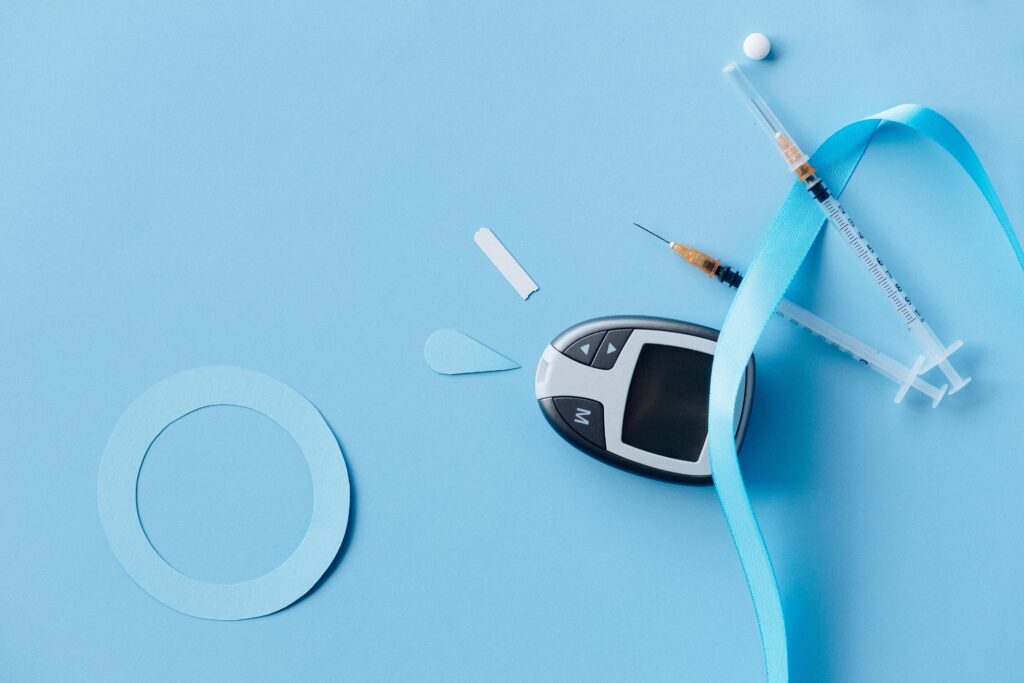Introduction
Diabetes is a common health condition that affects how your body uses sugar (glucose) for energy. When you have diabetes, your body either doesn’t make enough insulin or can’t use the insulin it produces properly. This leads to high blood sugar levels, which can cause serious health problems if not managed. In this article, we’ll cover what diabetes is, its causes, symptoms, and how to manage it effectively.
Table of Contents
What is Diabetes?
Diabetes is a chronic condition that affects your body’s ability to regulate blood sugar (glucose) levels. Glucose is an important energy source for the body’s cells, and insulin, a hormone made by the pancreas, helps move glucose from your bloodstream into your cells. In people with diabetes, this process is disrupted, leading to high blood sugar levels.
There are two main types of diabetes:
- Type 1 Diabetes: The body’s immune system attacks the cells in the pancreas that make insulin. People with Type 1 diabetes need to take insulin injections daily to manage their blood sugar levels.
- Type 2 Diabetes: The body either doesn’t make enough insulin or can’t use it effectively. This is the most common type of diabetes and is often linked to lifestyle factors like diet and exercise.
There is also gestational diabetes, which occurs during pregnancy but typically resolves after childbirth.

Causes of Diabetes
The exact causes of diabetes depend on the type:
- Type 1 Diabetes: The cause is unclear, but it’s believed to be related to a combination of genetic factors and environmental triggers, like viruses, that cause the immune system to attack insulin-producing cells.
- Type 2 Diabetes: This type is often related to lifestyle factors such as being overweight, lack of exercise, and poor diet. Genetics can also play a role, especially if you have a family history of diabetes.
Symptoms of Diabetes
The symptoms of diabetes can develop gradually, especially with Type 2 diabetes, and may go unnoticed for a long time. Common symptoms include:
- Increased thirst and frequent urination
- Unexplained weight loss
- Extreme fatigue
- Blurred vision
- Slow healing of cuts and bruises
If you notice any of these symptoms, it’s important to talk to a healthcare provider and get tested for diabetes.

Managing Diabetes
While diabetes is a lifelong condition, it can be managed effectively with the right approach:
- Healthy Diet: Focus on eating balanced meals that include vegetables, whole grains, lean proteins, and healthy fats. Avoid sugary foods and drinks that can cause blood sugar spikes.
- Regular Exercise: Physical activity helps your body use insulin more effectively and lowers blood sugar levels. Aim for at least 30 minutes of moderate exercise most days of the week.
- Medication: People with Type 1 diabetes need insulin therapy. Those with Type 2 diabetes may take oral medications, insulin, or other treatments depending on their condition.
- Monitoring Blood Sugar: Regularly checking your blood sugar levels helps you understand how well your treatment plan is working and make necessary adjustments.
Complications of Diabetes
If not managed properly, diabetes can lead to serious complications, including:
- Heart disease and stroke
- Kidney damage
- Eye problems (diabetic retinopathy)
- Nerve damage (neuropathy)
- Foot problems that may require amputation in severe cases
The key to preventing these complications is keeping blood sugar levels under control and following your treatment plan closely.

Conclusion
Diabetes is a serious but manageable condition. With the right lifestyle choices and medical care, people with diabetes can lead healthy, active lives. Understanding the causes, symptoms, and treatment options is the first step to taking control of your health.
For personalized advice or concerns about diabetes, feel free to reach out to our healthcare team at Health Authentica!










